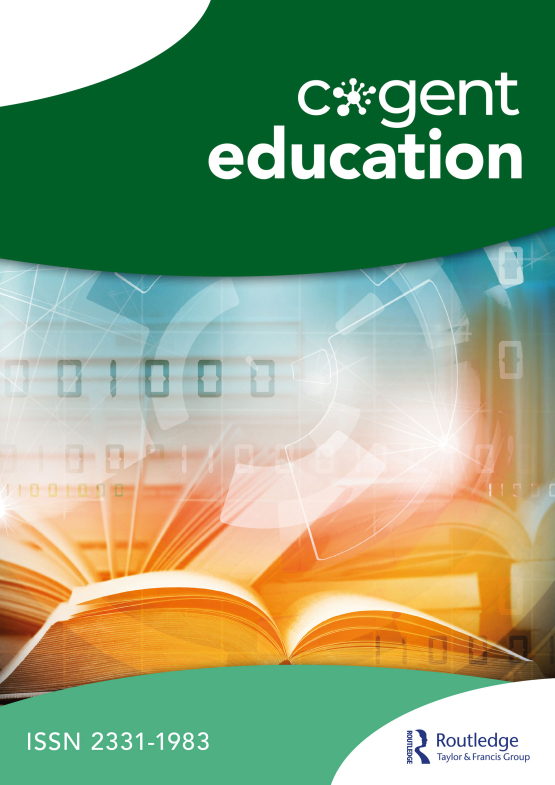Submit a Manuscript to the Journal
彩票大全软件:Cogent Education
For an Article Collection on
Generative Artificial Intelligence and Academic Integrity in Higher Education: State of the field three years after the general release of ChatGPT
彩票大全软件:Manuscript deadline

彩票大全软件:Article collection guest advisor(s)
Prof. Benjamin Luke Moorhouse,
City University of Hong Kong
[email protected]
彩票大全软件:Generative Artificial Intelligence and Academic Integrity in Higher Education: State of the field three years after the general release of ChatGPT
In 2022, the general release of ChatGPT and the plethora of Generative Artificial Intelligence (GenAI) tools that followed sent shock waves through the higher education sector. The ability of these tools to effectively interpret and generate monomodal and multimodal texts means it can be increasingly difficult to identify if a text was created by humans, machines or both (Casal & Kessler, 2023). Institutions scrambled to respond and develop policies and guidelines pertaining to the use of these tools within teaching, learning, assessment and research (Moorhouse et al., 2024).? A key concern was that students may use GenAI to cheat or plagiarise their written assignments and exams. This could undermine academic integrity and, ultimately, institutional reputation. In addition, scholars have argued that students could become over-reliant on GenAI, leading to a decline in their writing and critical thinking skills and negatively affecting the quality of education and student learning outcomes (Chan & Colloton, 2024). Initially, some institutions banned the use of GenAI tools in academic work, others advised students and instructors on specific uses and adapted the transparency principle, where students were required to declare their use of GenAI tools (Moorhouse et al., 2024). However, this has led to increases in deceptive use with students unwilling to declare their uses of GenAI due to fears of negative repercussions (Gonsalves, 2024). ?Although many universities have deployed AI detection tools, these have been found to be unreliable (Perkins et al., 2024).
At the same time, GenAI tools and functionalities have begun to be embedded in students and instructors’ practices changing how they engage in academic and professional tasks (Chan & Colloton, 2024). There is a need for graduates who can utilize GenAI tools responsibly and productively. Therefore, the line between acceptable and unacceptable use of GenAI has become blurred.
It seems that after three years since the release of ChatGPT, there is now a need to revisit the responses to GenAI and academic integrity in higher education. Therefore, this special collection brings together articles that explore the relationship between GenAI and academic integrity in the GenAI-age. Topics of interest include:
- The evolving responses of HE institutions to the development of GenAI including their policies and guidelines
- Perceptions of HE stakeholders (e.g. students, instructors and employers) towards academic integrity in the Gen-AI age
- Regional, discipline or institutional similarities and differences in the response to GenAI developments in HE
- Explorations of GenAI literacy and academic integrity development
- Reforms to programmes, courses, curricula, instruction and assessment in response to GenAI developments
Reference
Casal, J. E. and M. Kessler. 2023. Can linguists distinguish between ChatGPT/AI and human writing?: A study of research ethics and academic publishing.?Research Methods in Applied Linguistics?2/3: 100068.
Chan, C. K. Y. and T. Colloton, T. (2024).?Generative AI in Higher Education: The ChatGPT Effect. Oxen: Routledge
Gonsalves, C. 2024. Addressing student non-compliance in AI use declarations: implications for academic integrity and assessment in higher education. Assessment & Evaluation in Higher Education: 1–15. https://doi.org/10.1080/02602938.2024.2415654
Moorhouse, B. L., Yeo, M. A., and Y. Wan. 2023. Generative AI tools and assessment: Guidelines of the world’s top-ranking universities.?Computers and Education Open?5: 100151. https://doi.org/10.1016/j.caeo.2023.100151
Perkins, M., Roe, J. and B.H. Vu. 2024. Simple techniques to bypass GenAI text detectors: implications for inclusive education. Int J Educ Technol High Educ 21/53: https://doi.org/10.1186/s41239-024-00487-w
All manuscripts submitted to this Article Collection will undergo a full peer-review; the Guest Advisor for this Collection will not be handling the manuscripts (unless they are an Editorial Board member).
Please review the journal scope and author submission instructions prior to submitting a manuscript.
The deadline for submitting manuscripts is 20 November 2025.
Please contact Kristen Brida at [email protected] with any queries and discount codes regarding this Article Collection.
For Taylor and Francis Journals: Please be sure to select the appropriate Article Collection from the drop-down menu in the submission system.
彩票大全软件:About the Guest Advisor
Prof. Benjamin Luke Moorhouse is an Associate Professor in the Department of English, City University of Hong Kong, China. He has worked for the Hong Kong Education Bureau, Hong Kong Baptist University (HKBU), and The University of Hong Kong.? He has received several teaching awards, including The President’s Award for Outstanding Performance in Individual Teaching from HKBU in 2023. His research focuses on the lived experiences, competencies and professional learning of language teachers and teacher educators. Currently, he is exploring the impact of GenAI on language teaching and learning. He has published widely in international journals, including Computers and Education: Artificial Intelligence, Computers and Education Open, Interactive Learning Environments and System. According to Stanford University, Benjamin was in the?top 2% of cited scholars?worldwide in 2022, 2023, and 2024.
Prof. Moorhouse does not have any Conflicts of Interest to disclose.
彩票大全软件:Benefits of publishing open access within Taylor & Francis
Global marketing and publicity, ensuring your research reaches the people you want it to.
Article Collections bring together the latest research on hot topics from influential researchers across the globe.
Rigorous peer review for every open access article.
Rapid online publication allowing you to share your work quickly.
彩票大全软件:Submission Instructions
All manuscripts submitted to this Article Collection will undergo desk assessment and peer-review as part of our standard editorial process. Guest Advisors for this collection will not be involved in peer-reviewing manuscripts unless they are an existing member of the Editorial Board. Please review the journal Aims and Scope and author submission instructions prior to submitting a manuscript.


